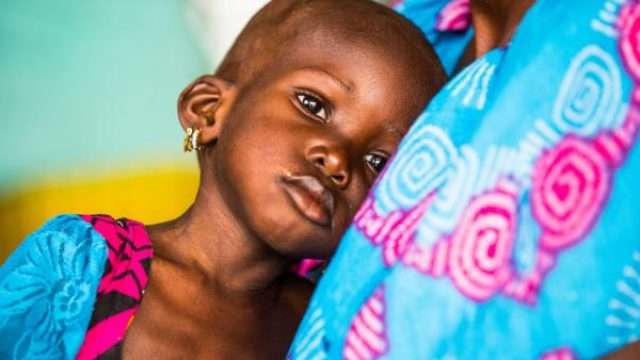Kano State has made a significant move to combat child malnutrition by approving over N637 million and releasing N500 million in counterpart funding under the Child Nutrition Fund (CNF). This funding is pivotal for scaling up sustainable nutrition programs and securing essential supplies to address the pressing malnutrition crisis in the state.
The CNF is designed to support countries facing high rates of child malnutrition by matching government investments to accelerate efforts to prevent, detect, and treat malnutrition-related conditions. According to the 2023/24 National Demographic Health Survey (NDHS), Kano mirrors Nigeria’s national malnutrition challenges, with 51.9% of children under five experiencing stunting, 38.4% being underweight, and 10.4% suffering from wasting. These figures highlight the severe impact of malnutrition, which hinders growth, weakens immunity, and reduces productivity later in life.
Through the CNF, Kano aims to increase its stock of critical nutrition commodities, including Ready-to-Use Therapeutic Foods (RUTF), Multiple Micronutrient Supplements (MMS), Micronutrient Powder (MNP), and Small-quantity lipid-based nutrient supplements (SQ-LNS). This increase is expected to meet the state’s nutritional needs and improve its capacity to treat and manage malnutrition effectively.
The successful approval of the CNF is the result of advocacy efforts by CS-SUNN (Civil Society Scaling-Up Nutrition in Nigeria) and its partners, including Alive & Thrive, UNICEF, and others. These efforts included engaging key government officials and traditional leaders, such as the Emir of Kano, His Royal Highness Alhaji (Dr.) Muhammadu Sanusi II. Advocacy visits, media roundtables, and discussions with officials emphasized the importance of establishing nutrition departments, extending paid maternity leave, and timely release of funds for nutrition interventions.
Mr. Sunday Okoronkwo, Executive Secretary of CS-SUNN, commended the Kano State Government for its progress but called for continued and timely funding releases to effectively tackle malnutrition. He highlighted the need for focused action, particularly during the critical first 1,000 days of a child’s life, including before conception, at birth, and during breastfeeding.
Emir Muhammadu Sanusi II, a vocal advocate for maternal and child health, emphasized the importance of prioritizing nutrition at these stages. He also reflected on his past advocacy for extending maternity leave to support exclusive breastfeeding and expressed his commitment to contribute to addressing Kano’s malnutrition crisis.
With the release of the CNF counterpart funding, the state is poised to make significant strides in improving nutrition, with coordinated efforts from government, traditional leadership, and advocacy groups. This marks a hopeful new chapter for Kano’s children and its ongoing fight against malnutrition.



